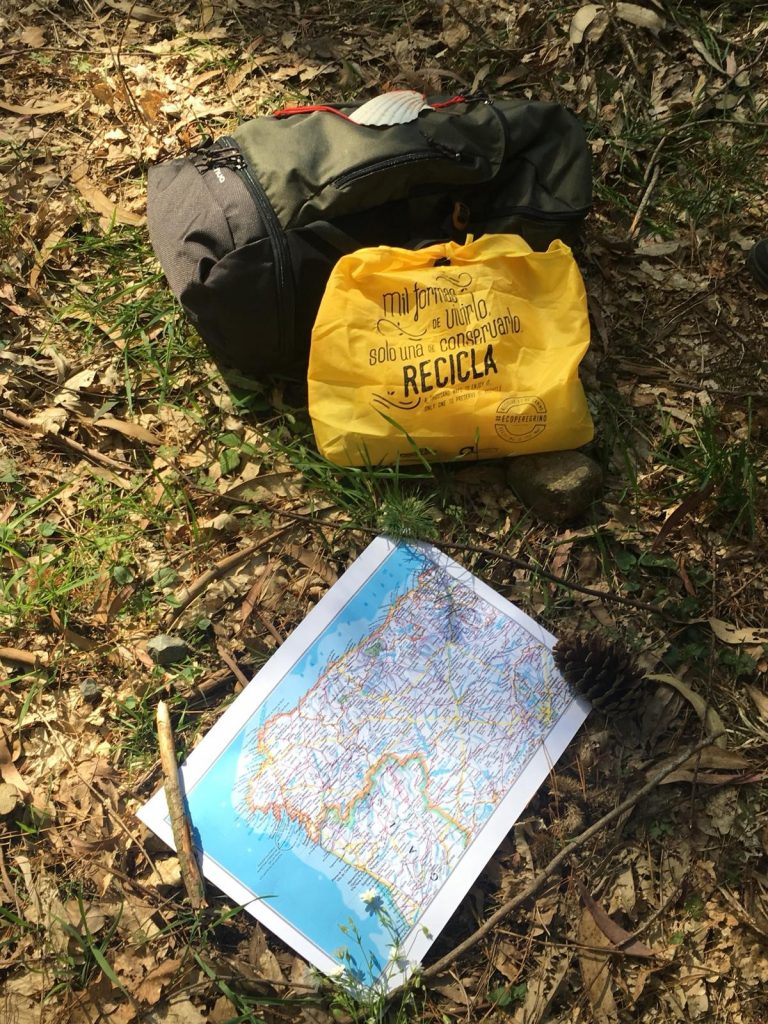Article translated by an automatic translation system. Press here for further information.
A Camino de Santiago aware of recycling
By ECOEMBES | 21/08/2019

Each year, thousands of pilgrims from different parts of the world are encouraged to make the Camino de Santiago, a journey that, if for something, stands out, is for the beauty of the nature that surrounds each walker during the kilometers he travels. In order to keep this nature free from waste, Ecoembes, the non-profit environmental organization that coordinates packaging recycling in Spain, created four years ago “The Recycling Road”, an environmental project that seeks to reinforce the importance of caring for natural environments along the famous route. This year, their efforts focus on achieving a common goal: that the next Year of Santo Compostelan, which will be in 2021, will be the beginning of the most sustainable and committed era to the environment and the recycling of the history of the Jacobean route.
To achieve that goal, the commitment to sustainability is extended this year. Thus, pilgrims will be able to find “eco-hostels” along the journey along the French Way (Burgos, Palencia, León, Lugo, A Coruña and La Rioja), the North (Asturias, Galicia and Cantabria), Portuguese (Galicia), English (Galicia) and Lebaniego (Cantabria).
Separate, walk, recycle
The project aims that each walker can recycle and separate the waste that they generate or find along the Camino and, thus, avoid the proliferation of waste (man-made waste and abandoned in nature). A gesture that, although it is always essential, becomes even more important along this route through an unparalleled natural framework.
To help pilgrims in this important work, Ecoembes collaborates with a total of 453 “Eco-hostels” to encourage hospitals to turn their hosts into sustainable hostels. For this purpose, they are given a kit with the different materials and all instructions to explain the campaign in detail.
All participating hosts are equipped with an average of 2 to 4 yellow recycling buckets – where plastic, cans and briks- and blue packaging are deposited – for paper and cardboard packaging. Furthermore, in order to be able to collect data on how many kilos have been recycled and to take stock of the weekly vacancies of waste paper, “eco-hostels” consist of a timetable that will also include “eco-tips” and key days for the environment. They also feature “ecotips” stickers such as “Turn off the light and turn on your eco side”, “Turn off the tap in the face of water waste” or “Make the Road circular. It reduces, reuses and recycles” so that the commitment of the Eco-Pilgrims goes beyond the Camino.
On the other hand, innovation will also be key to the Recycling Road this year. In this way, pilgrims will find a very special road companion: A.I.R-e, the recycling bot. This pilgrim bot is already active on the Recycling Road website helping the EcoPilgrims to solve the doubts about the recycling that may arise on their journey.
A tree for sustainability
One of the most significant innovations in this edition of the Recycling Road is the Compostela of the Eco-Peregrino, which was born with the objective of giving visibility to its commitment to recycling. Thus, for each person who upload a photo of his Compostela of the EcoPeregrino with three stamps (which they will be able to obtain in the participating hostels of the Recycling Road during the months of June to October) with the #EcoPeregrino on Instagram or Twitter, an indigenous tree will be planted in the Galician forests adjacent to the Xacobea Route.